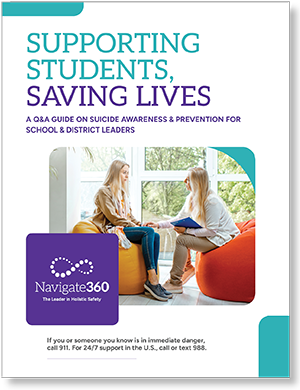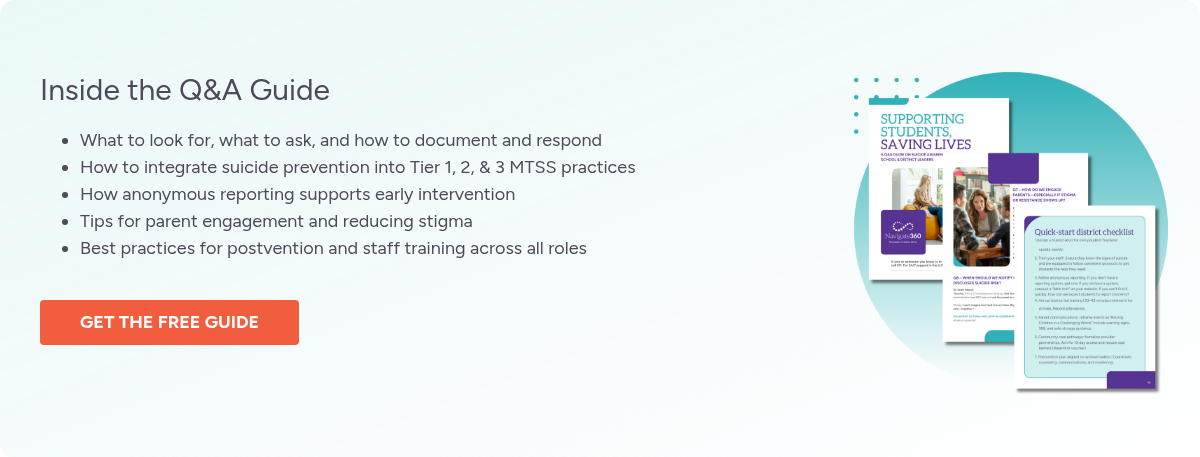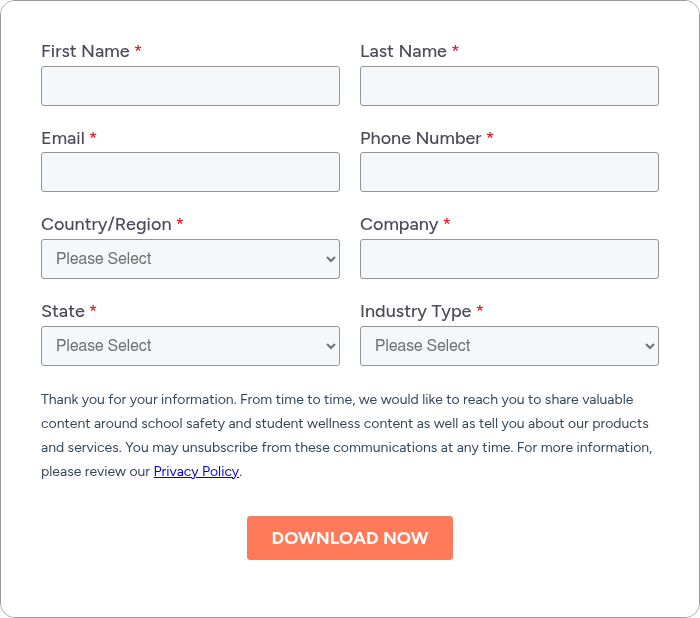Expert Perspectives. Real-World Strategies. Actionable Next Steps.
A Q&A Guide on Suicide Awareness & Prevention for School & District Leaders
Suicide is one of the leading causes of death among school-age youth—yet many educators still feel unprepared to recognize the warning signs, respond appropriately, and connect students to the help they need.
This practical Q&A guide, featuring expert insights from Dr. Scott Poland, Dr. McKinley Withers, and Thom Jones, equips school and district leaders with clear, compassionate strategies for prevention, intervention, and postvention. Use it to lead internal trainings, update protocols, and support staff in building a culture of connection and readiness.

Preventing Suicide Starts with School Culture, Connection, & Consistency
According to recent CDC data:
- 40% of high school students report feeling persistently sad or hopeless
- 1 in 10 has attempted suicide in the past year
But most students will never say "I need help" unless they have a trusted adult and a safe environment to speak up.
This guide offers practical steps for:
- Identifying early warning signs
- Building trusted relationships
- Training all staff to ask clearly and respond consistently
- Integrating prevention into MTSS and character education
- Partnering with parents and community mental health providers
"The most obvious [warning signs] are talking about suicide, writing about suicide, researching suicide... Some young people are leading secret lives on social media."
"Whether we like it or not, we are teaching social and emotional lessons 100% of the time… Even if we're teaching emotional skills at school, students are still dealing with a very loud, angry, unregulated world."
"A principal kept a spreadsheet of every student and who their trusted adult is. New student? You've got a week to assign one."

